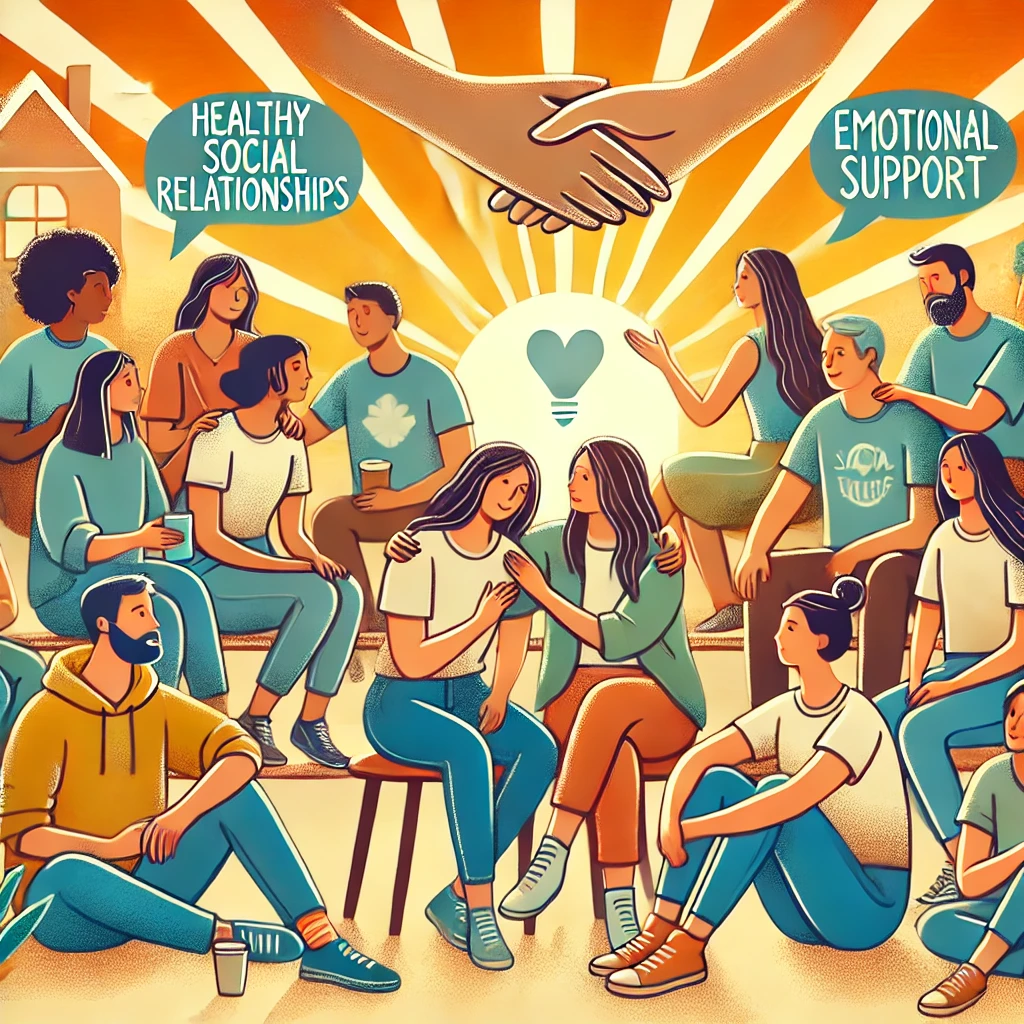The Crucial Role of Healthy Social Relationships in Emotional Wellbeing and Mental Health
Human beings are inherently social creatures. From the moment we are born, our interactions with others shape our development, emotional wellbeing, and mental health. The significance of healthy social relationships cannot be overstated, as they are fundamental to our survival, personal growth, and overall happiness. This essay explores the importance of social connections through the lenses of neuroscience and social psychology, illustrating how our innate predispositions for deeper relationships contribute to our emotional and mental health.
Innate Sociality: The Genetic Blueprint
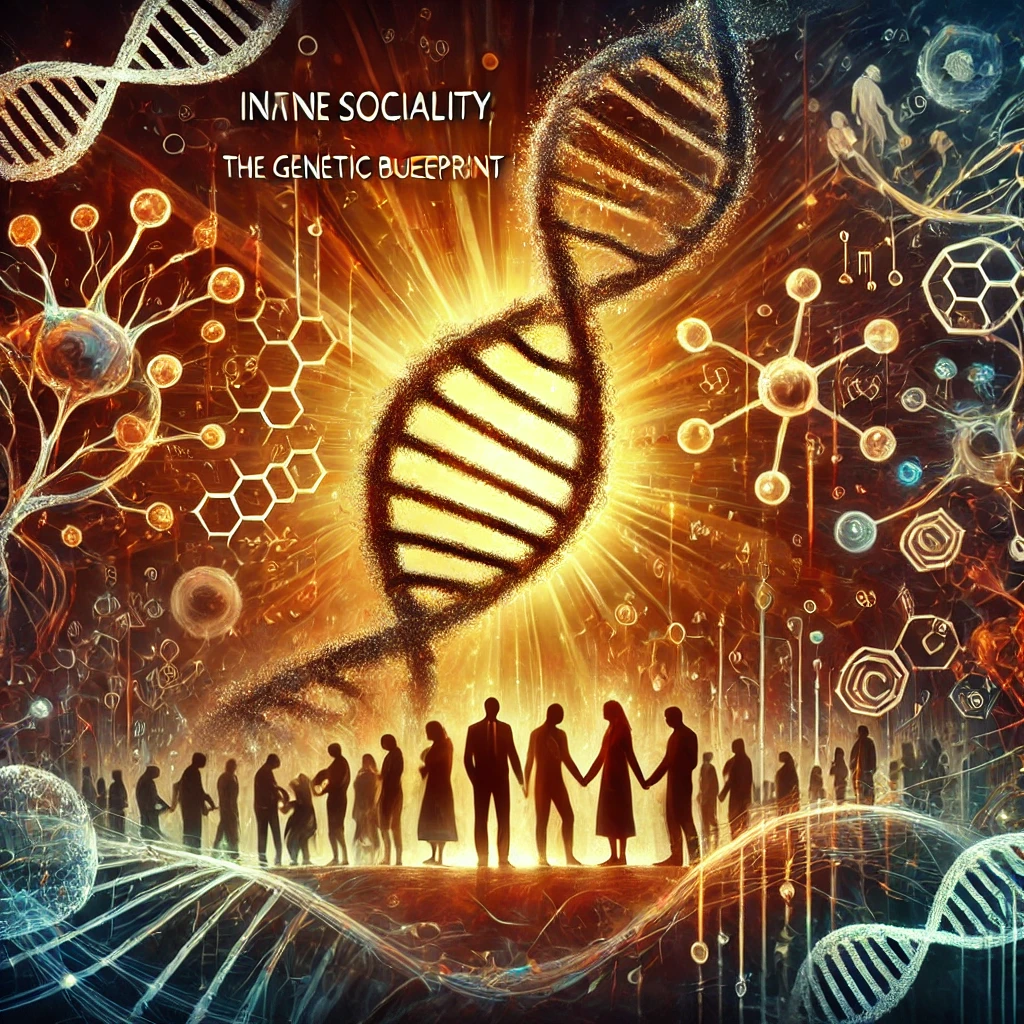
Humans are born with a vast reservoir of innate knowledge encoded in our genome, which predisposes us to seek social connections. This genetic foundation underscores our need for companionship, cooperation, and community. The concept of the individual and collective unconscious, introduced by Carl Jung, further elucidates our deep-seated drive for social interaction. The individual unconscious comprises personal memories and experiences, while the collective unconscious encompasses shared ancestral memories and archetypes common to all humans. This duality highlights our inherent inclination towards forming meaningful relationships, not just for personal fulfillment but also for the continuity of our species.
Neuroscience of Social Relationships

Neuroscience provides profound insights into how social relationships impact our brain function and emotional wellbeing. The brain’s social networks, including the prefrontal cortex, amygdala, and hippocampus, play pivotal roles in processing social information, regulating emotions, and forming memories related to social interactions. Oxytocin, often referred to as the “love hormone,” is a neuropeptide that facilitates bonding, trust, and empathy between individuals. Elevated levels of oxytocin are associated with increased feelings of attachment and reduced stress responses, demonstrating the biological underpinnings of our need for social connections.
Conversely, social isolation and loneliness can have detrimental effects on brain health. Chronic loneliness is linked to increased inflammation, impaired cognitive function, and heightened risk of mental health disorders such as depression and anxiety. Studies using functional magnetic resonance imaging (fMRI) have shown that social pain activates similar brain regions as physical pain, indicating that the absence of social bonds can be as distressing as physical injury. These findings emphasize the critical role of social relationships in maintaining not only emotional wellbeing but also neurological health.
Social Psychology: The Dynamics of Human Interaction

Social psychology examines how individuals’ thoughts, feelings, and behaviors are influenced by the presence and actions of others. One of the foundational theories in this field is the Social Support Theory, which posits that supportive relationships provide emotional, informational, and instrumental assistance that buffers individuals against life’s stresses. Social support has been consistently linked to improved mental health outcomes, including lower levels of depression, anxiety, and stress, as well as enhanced resilience in the face of adversity.
Moreover, the concept of social identity theory highlights how our affiliations with groups contribute to our self-concept and self-esteem. Being part of a community or social group fosters a sense of belonging and purpose, which are essential for psychological stability. For example, participation in community organizations, religious groups, or social clubs can provide individuals with a support network, shared values, and a sense of belonging, all of which bolster mental health.
Examples Illustrating the Importance of Social Relationships
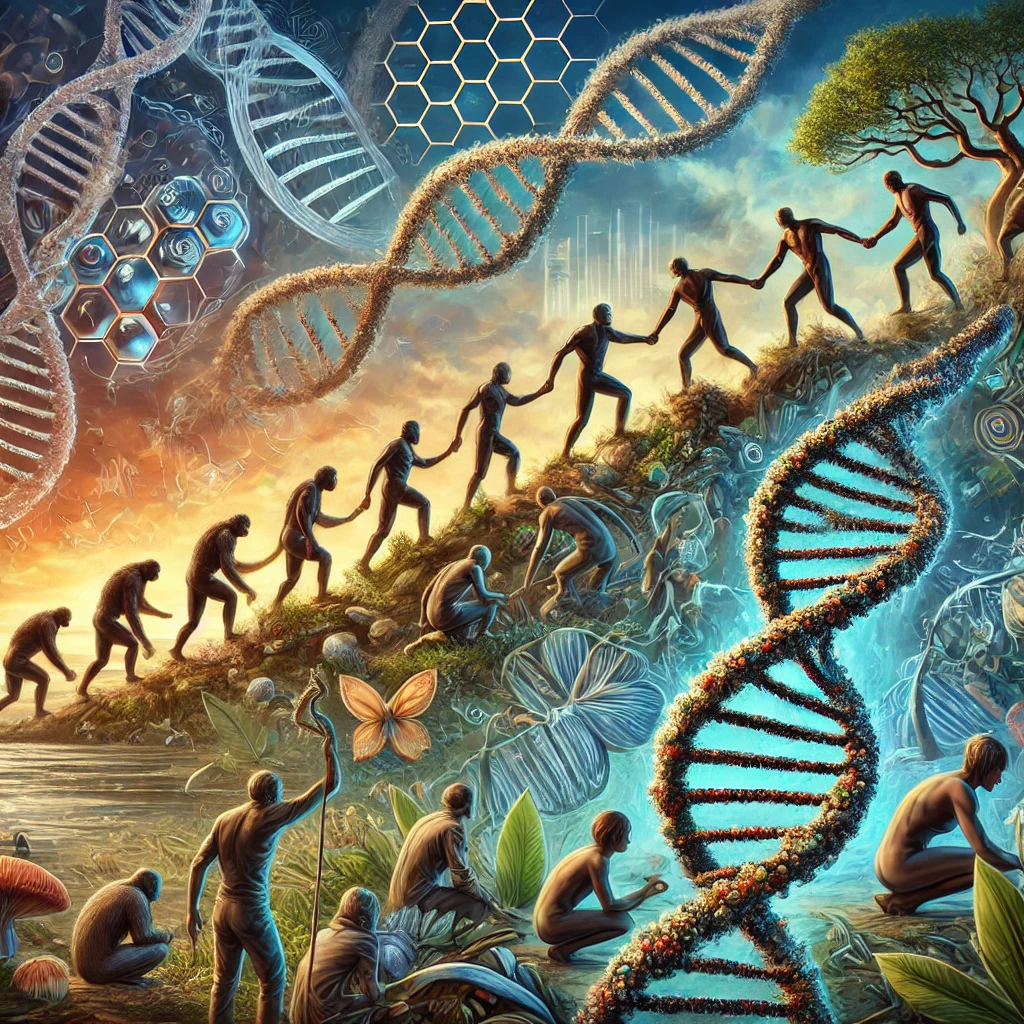
Consider the case of elderly individuals living in isolation. Studies have shown that older adults who maintain active social lives experience slower cognitive decline and report higher levels of life satisfaction compared to their isolated counterparts. Social engagement provides mental stimulation, emotional support, and a sense of purpose, all of which contribute to better mental health outcomes in aging populations.
Another example can be found in workplace settings. Employees who cultivate positive relationships with colleagues are more likely to experience job satisfaction, reduced stress levels, and lower incidences of burnout. Collaborative work environments that foster teamwork and mutual support not only enhance individual performance but also contribute to a healthier organizational culture.
In the realm of mental health treatment, group therapy exemplifies the therapeutic benefits of social connections. Patients participating in group therapy sessions often report feeling understood and supported by others who share similar experiences, which can lead to increased self-awareness, emotional healing, and improved coping mechanisms.
Survival of the Species: Beyond Individual Fitness

The metaphor of the “survival of the fittest” is often misconstrued as a struggle between individuals. However, from an evolutionary perspective, it is the fitness of the species that matters. Healthy social relationships are instrumental in ensuring the survival and prosperity of human populations. Cooperative behaviors, altruism, and the ability to form alliances have been crucial in overcoming environmental challenges and advancing technological and cultural achievements.
For instance, early human societies relied on social cooperation for hunting, gathering, and protecting against predators. These collaborative efforts not only increased individual chances of survival but also facilitated the development of complex social structures and cultural norms. In contemporary times, global challenges such as pandemics, climate change, and social inequality necessitate collective action and solidarity. The ability to form and maintain healthy social relationships is therefore indispensable for addressing such issues and ensuring the long-term survival of humanity.
Wrap up
Healthy social relationships are fundamental to emotional wellbeing and mental health, deeply rooted in our genetic makeup and reinforced by neurological and psychological mechanisms. Neuroscience reveals how social connections influence brain function and emotional regulation, while social psychology elucidates the dynamics of human interaction and the benefits of social support. Real-world examples demonstrate the tangible impacts of social relationships on various aspects of life, from aging and workplace satisfaction to mental health treatment and societal resilience. Ultimately, our innate predisposition for deeper relationships serves not only individual needs but also the collective survival of our species, underscoring the indispensable role of social connections in human existence.
The Vital Role of Social Contact in Maintaining Brain Health: Insights from Isolation
Studies

Human beings are inherently social creatures, relying on interactions and relationships to thrive both emotionally and cognitively. The significance of social contact extends beyond mere companionship; it plays a crucial role in maintaining brain health and overall wellbeing. This essay explores how social interactions contribute to brain health, highlighting the detrimental effects of social isolation through the lens of a notable 2019 study published in the New England Journal of Medicine (NEJM). By examining the neurological underpinnings and psychological mechanisms, we can better understand why maintaining social connections is essential for a healthy brain.
The Neuroscience of Social Interaction
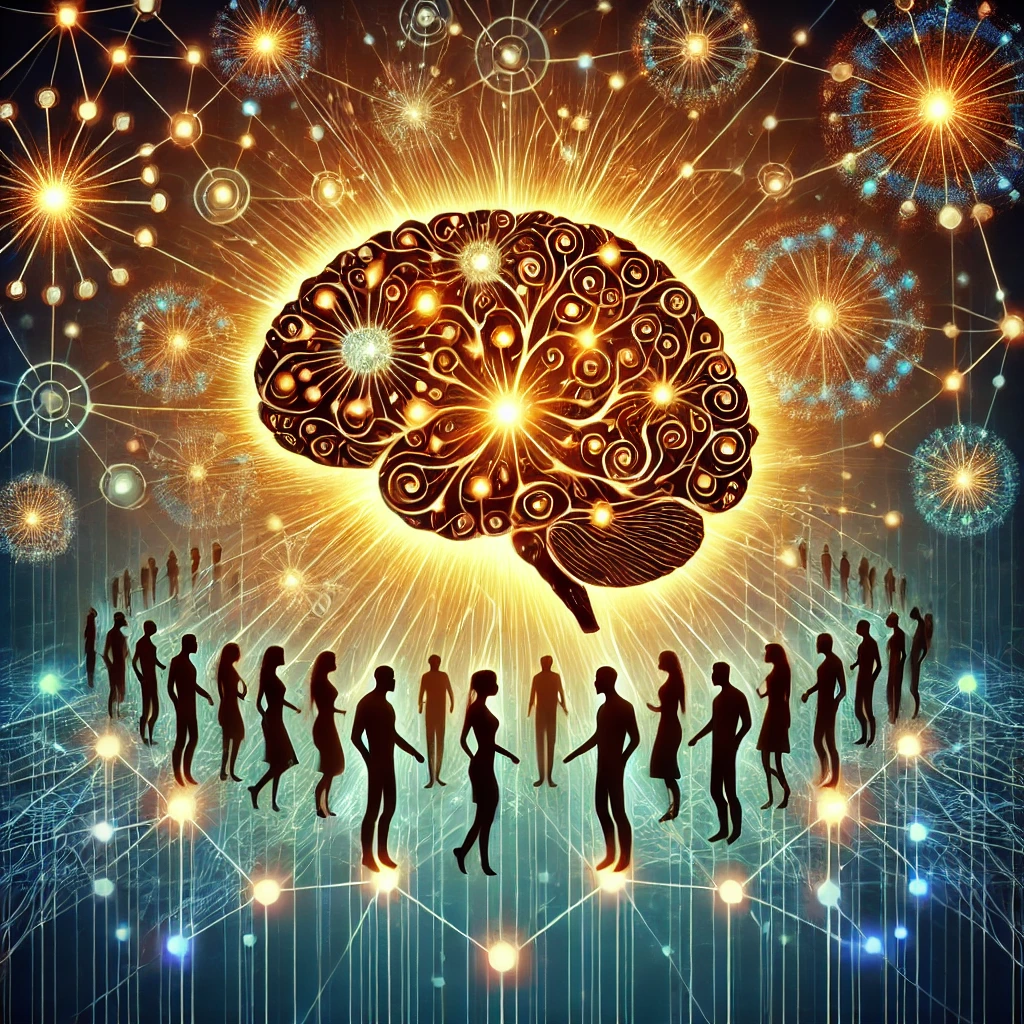
Social interactions engage multiple regions of the brain, fostering cognitive functions and emotional regulation. Key areas involved include:
- Prefrontal Cortex: Responsible for decision-making, problem-solving, and moderating social behavior, the prefrontal cortex is highly active during social interactions.
- Amygdala: This region processes emotions such as fear and pleasure, playing a pivotal role in forming emotional memories related to social experiences.
- Hippocampus: Essential for memory formation and spatial navigation, the hippocampus is involved in recalling social interactions and building social networks. Neurotransmitters like oxytocin and dopamine are released during positive social interactions, promoting feelings of trust, bonding, and pleasure. Oxytocin, often dubbed the “love hormone,” enhances social bonding and reduces stress, while dopamine reinforces rewarding experiences, encouraging repeated social engagement.
The Impact of Social Isolation on the Brain

Contrary to the benefits of social interaction, social isolation can have profound negative effects on brain structure and function. The 2019 NEJM study provides compelling evidence of these adverse impacts. Researchers monitored nine polar scientists stationed in Antarctica for 14 months, a period characterized by extreme isolation and minimal social contact. Advanced neuroimaging techniques revealed significant structural changes in their brains:
• Brain Region Shrinkage: Crucial areas such as the prefrontal cortex and hippocampus exhibited noticeable atrophy. These regions are vital for cognitive functions like memory, decision-making, and emotional regulation.
• Reduced Neuroplasticity: Extended isolation diminished the brain’s ability to adapt and reorganize itself, a phenomenon known as neuroplasticity. This reduction hampers learning and the formation of new memories.
• Increased Stress Responses: Chronic isolation elevated stress hormone levels, particularly cortisol, which can damage neural pathways and exacerbate cognitive decline.
These findings underscore the brain’s dependence on regular social stimulation to maintain its structural integrity and functional capabilities. The isolation experienced by the polar scientists serves as a stark reminder of how social deprivation can lead to cognitive deterioration and emotional distress.
Social Contact as a Protective Factor for Brain Health
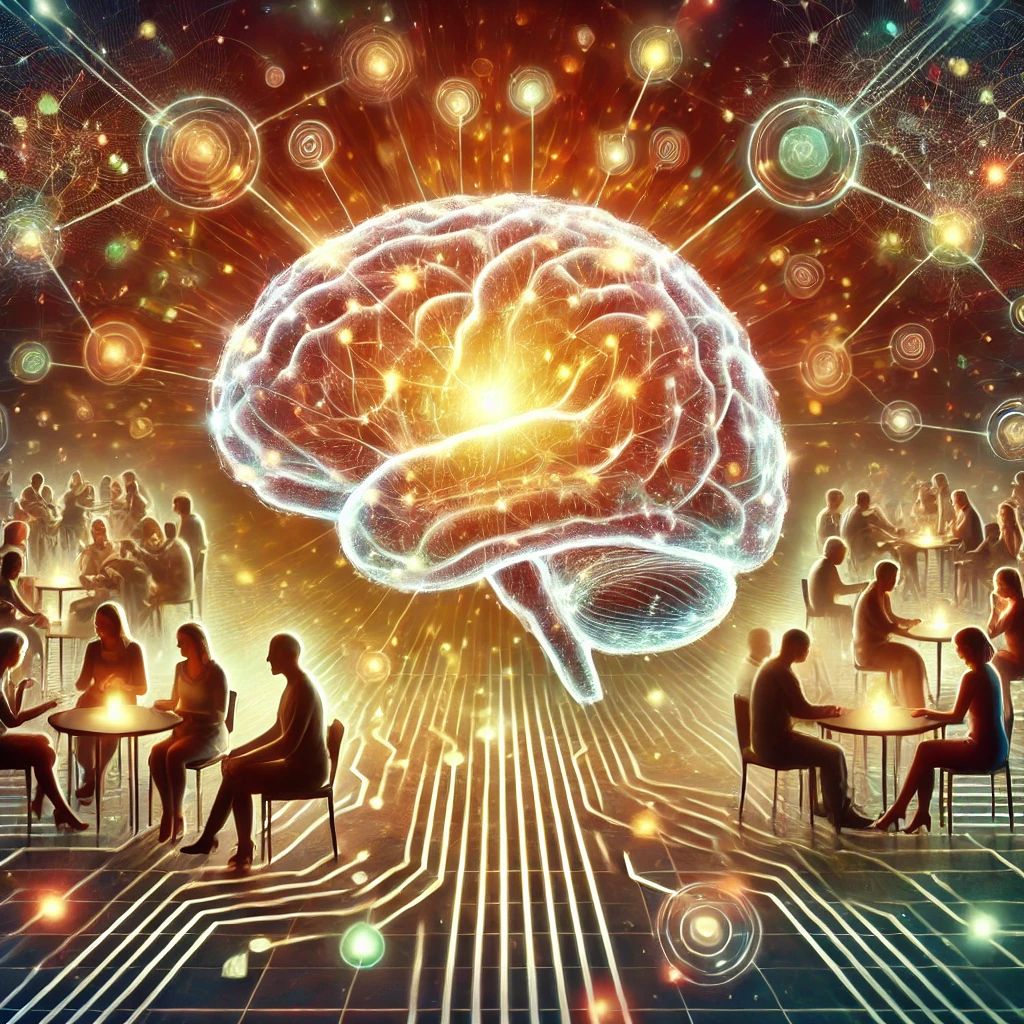
Engaging in regular social interactions serves as a protective buffer against cognitive decline and mental health issues. Several mechanisms illustrate how social contact fosters brain health:
- Cognitive Stimulation: Conversations and social activities challenge the brain, promoting cognitive flexibility and resilience. Engaging in diverse social scenarios enhances problem-solving skills and memory retention.
- Emotional Support: Social connections provide emotional support, reducing the risk of depression and anxiety. Sharing experiences and feelings with others fosters emotional regulation and resilience against stress.
- Physical Health Benefits: Socially active individuals often engage in healthier lifestyles, including regular physical activity and better dietary habits, indirectly supporting brain health.
- Stress Reduction: Positive social interactions lower cortisol levels and mitigate the physiological impacts of stress, preserving neural structures and functions.
Real-World Examples Illustrating Social Contact Benefits

Elderly Populations: Older adults who maintain active social lives tend to experience slower cognitive decline and lower incidences of dementia. Participation in community activities, social clubs, and regular interactions with family and friends provide mental stimulation and emotional fulfillment.
Workplace Environments: Employees with strong social networks at work report higher job satisfaction and lower stress levels. Collaborative environments foster creativity, enhance problem-solving abilities, and contribute to overall mental wellbeing.
Mental Health Treatments: Group therapy and support groups leverage the power of social connections to aid recovery. Sharing experiences with peers facing similar challenges fosters a sense of belonging and provides diverse perspectives for coping strategies.
Balancing Social Interaction in the Digital Age

While digital communication platforms have expanded opportunities for social interaction, they also present challenges in maintaining meaningful connections. Superficial online interactions may not provide the same cognitive and emotional benefits as face-to-face interactions. However, technology can also facilitate connections for individuals in remote or isolated situations, potentially mitigating some negative effects of physical isolation.
Takeaway
The intricate relationship between social contact and brain health is evident through both neuroscience and real-world observations. The 2019 NEJM study highlighting brain shrinkage in isolated polar scientists starkly illustrates the adverse effects of social deprivation. In contrast, regular social interactions promote cognitive resilience, emotional stability, and overall brain health. As social beings, nurturing our relationships is not merely a source of joy but a fundamental component of maintaining a healthy and functional brain. In an increasingly interconnected yet sometimes isolating world, prioritizing meaningful social connections is essential for sustaining our mental and emotional wellbeing.
